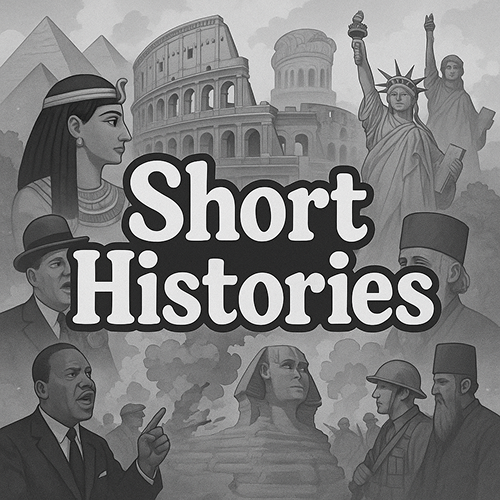The Origins: Turkey
Turkey, often referred to as the Bridge Between East and West, or the Land of the Crescent, is a nation shaped by thousands of years of transformation from ancient Anatolian civilizations to Byzantine grandeur, Ottoman splendor, and modern republican reform. Turkey has stood at the pivot of empire, religion, trade, and revolution, molding its rich and resilient identity through centuries of cultural fusion and historical upheaval.
Long before it was a modern state, the Anatolian Peninsula was home to some of the world’s earliest and most complex civilizations. The site of Göbekli Tepe (c. 9600 BCE), regarded as the world’s oldest known temple, points to ritual practices thousands of years before the pyramids. The Hittite Empire (c. 1600–1178 BCE) carved out a powerful domain, challenging Egypt at the Battle of Kadesh and producing an advanced legal and diplomatic tradition. Following them came the Phrygians, Urartians, Lydians, and Greeks, who founded great city-states such as Ephesus, Troy, and Pergamon as bastions of philosophy, medicine, and art that echoed across the Mediterranean world.
The region’s destiny took a momentous turn when the Roman emperor Constantine the Great founded Byzantium, later renamed Constantinople, as the eastern capital of the Roman Empire in 330 CE. Over a millennium, this city flourished as the heart of the Byzantine Empire, a citadel of Orthodox Christianity, Roman governance, and Hellenistic culture. Byzantine society gave the world dazzling mosaics, imperial theology, and monumental architecture such as Hagia Sophia, a masterpiece whose domed silhouette still dominates Istanbul’s skyline.
The ancient city’s fate was forever altered in 1453, when Sultan Mehmed II led the Ottomans in a final siege of Constantinople. The fall of the Byzantines ushered in the dawn of the Ottoman Empire, an empire that would stretch across Southeast Europe, North Africa, and the Middle East, dominating geopolitics for nearly 600 years. Under rulers like Suleiman the Magnificent, the empire became a global superpower, championing sophisticated systems of governance, codified law, and cultural patronage. Architect Mimar Sinan designed breathtaking mosques and bridges; the elite janissary corps secured imperial power; and a cosmopolitan population created a flourishing urban society.
The Ottoman kitchen reflected this diversity, birthing world-renowned dishes like kebabs, baklava, dolma, pide, and mantı as a testament to Turkey’s central role in trade and taste. The Ottomans also welcomed those fleeing persecution, notably Jews expelled from Spain in 1492, fostering a multiethnic and multifaith empire. Nevertheless, rising nationalism, internal dissent, and European encroachment sowed the seeds of decay. The 19th century was marked by reform movements like Tanzimat but also by financial crises, territorial losses and an increasing perception of the empire as “the Sick Man of Europe.”
World War I proved fatal. Aligning with the central powers, the Ottomans suffered catastrophic defeat, leading to the empire’s dismemberment under Allied occupation. Amid this crisis, Mustafa Kemal Atatürk, a former general, emerged as the architect of a new national identity. In 1923, the Republic of Turkey was proclaimed, replacing centuries of sultanate rule with secular modernism. Atatürk launched radical reforms, switching the script from Arabic to Latin, granting women suffrage, dismantling religious courts, banning the fez, and prioritizing industrialization and education. His reforms laid the groundwork for a fiercely modern and civic-minded nation-state.
In the aftermath of World War II, Turkey aligned itself with the Western bloc, joining NATO in 1952 and embracing democratic elections though often interrupted by military coups. The second half of the 20th century saw cycles of progress and disruption: rapid urbanization, increased literacy, worker migration to Europe, and a persistent Kurdish question. Cultural life exploded with novels by Orhan Pamuk, globally acclaimed cinema, and the growing influence of Turkish television dramas, which gained millions of viewers across the Arab world, South-Asia, and Eastern-Europe.
The 21st century heralded major change under President Recep Tayyip Erdoğan, whose party brought both infrastructure renewal and political controversy. Under Erdoğan’s leadership, Turkey experienced strong economic growth, a rise in megaprojects like Istanbul Airport and Canal Istanbul, and a recalibration of national identity rooted more firmly in Islamic tradition and Ottoman nostalgia. Yet concerns about democratic backsliding, press freedom, and foreign policy adventurism created internal divisions. Turkey increasingly acted as a regional power, balancing relations with Europe, the U.S., Russia, and the Middle East while also asserting itself in conflicts from Syria to Libya. Turkey changed its official name to Türkiye at the United Nations in June 2022, following a request from the Turkish government. The request was made to better represent the country's culture, civilization, and values, and to distance it from the English word "turkey" which also refers to the bird.
Culturally, Turkey remains a bridge across eras. It boasts vibrant culinary traditions including lahmacun, meze spreads, Turkish coffee, lokum (Turkish delight), and increasingly fusion cuisine in global cities like Istanbul and Izmir. It is a land of surreal geography: Cappadocia’s fairy chimneys, Pamukkale’s mineral terraces, and the sacred Mount Ararat. Istanbul, once the heart of three empires, continues to enchant travelers with its layered beauty, from the Blue Mosque to Galata Tower.
Today, Turkey is a G20 economy, a regional influencer, and a nation perpetually negotiating its own dualities. Between Islam and secularism, East and West, modernity and tradition. Its is the story of Byzantium reborn, of an empire shattered and resurrected as a republic, writing its own narrative amid the turbulent tides of history.
This is Turkey: a land straddling continents and centuries, where every stone tells a story and the past is never far from the present.
Next Time: The Origins: Germany | From Tribes to Titans of Industry
Fragmented kingdoms, a unifying chancellor, devastating wars, and modern leadership. Germany’s road to today is paved with arduous transformation.
Please go back to top & scroll gently

